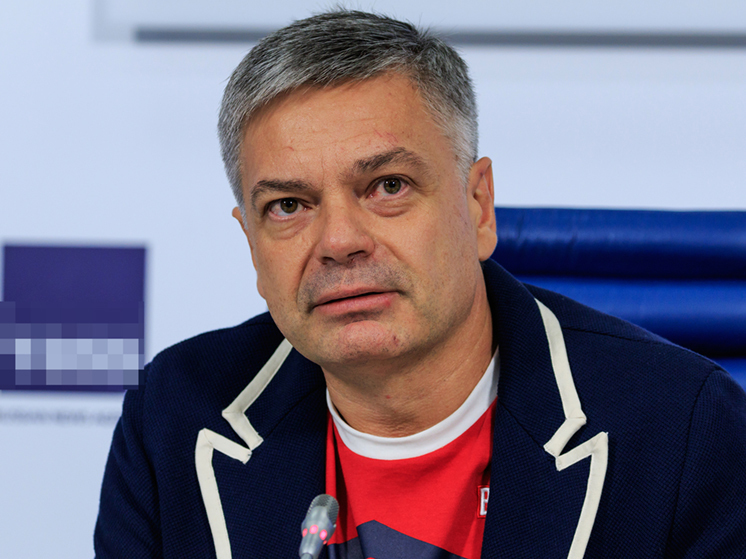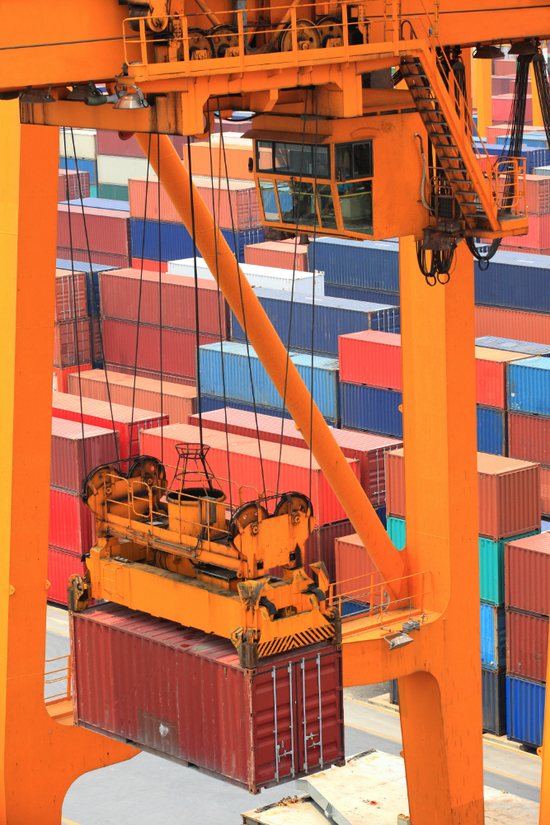It took 30 long years for the founder of Delo Group of Companies, Sergei Shishkarev, to reach his first billion dollars.
This year, a record number of Russians are in the Forbes global ranking of billionaires — their number has increased to 125. One of the 19 newcomers to the list was Shishkarev, the founder of Russia’s largest transport and logistics holding company Delo. Unlike the regulars of the prestigious rating, who made their fortunes in the 90s from trading raw materials and industrial enterprises of the USSR, he built his empire “from scratch” himself. Read about one of the few dollar billionaires in Russia who earned their fortune through honest work in the material of MK.

Sergei Shishkarev spent almost his entire childhood in the Novorossiysk port, where his father worked as the chief dispatcher. From an early age he was immersed in the specifics of the port and knew perfectly well how everything worked. “I saw from the inside what a port is, how its work is planned, how a team is formed to handle ships, what is the order of deployment of the fleet, how the railway functions,” the same Forbes quoted Shishkarev several years ago. But Shishkarev Jr. initially did not want to follow in his father’s footsteps — he was attracted by the idea of serving the Fatherland. Therefore, after his “imprisonment” in the Northern Fleet, he entered the Institute of the Ministry of Defense at the Faculty of Western Languages.
At any other time, Sergei Shishkarev would have had a brilliant military career or success in public service, because he graduated from the institute with honors. However, in 1992, future prospects for working for the state were very vague, and Sergei Shishkarev returned to his native Novorossiysk to do business. There he founded Delo LLC, a small forwarding company that began providing agency services in the port he had known since childhood.
Quite soon, knowledge of the port business and emerging entrepreneurial talent made the future billionaire’s company a notable player. He managed to attract new clients to the port, including large metallurgical companies. And soon he became one of the major shareholders of NCSP, the country’s largest port on the Black Sea.
Sergey Shishkarev is a pioneer and ambassador of container transportation in Russia, whose personal contribution to the development of this transport segment cannot be overestimated. Back in the mid-90s, his attention was attracted by containers — a segment that at that time few people in Russia were interested in, but in which Shishkarev saw enormous potential. In football terminology, in this area he was «first on the ball.»
In 2005, not finding mutual understanding with the other co-owners of the Novorossiysk port, Shishkarev sold his stake in NCSP. He invested almost all the proceeds from the sale of the share in the construction of his own NUTEP container terminal next to his former partners. It took him 10 long years to realize this idea. And he was right — after just a few years, every second container in Novorossiysk was handled at its berths, and today it is the largest and most modern terminal on the Black Sea, having already handled 5.5 million containers, of which more than 600 thousand were handled last year alone.
NUTEP became the starting point for the construction of an entire business empire. Next to it, Shishkarev is building — again literally in the clear sea — a new grain terminal. Nobody predicted rapid growth in this area at that time either, but success awaited the founder of “Delo” again. He first invested 1.5 billion rubles in the construction of infrastructure, and soon grain exports went up sharply. After 17 years and more than half a billion dollars of investment in the development and expansion of KSK, it is the leader in grain transshipment in the Azov-Black Sea basin, having shipped more than 8 million tons for export in 2023.  Photo: jcomp-ru.freepik.com
Photo: jcomp-ru.freepik.com
By the end of the 2000s, Sergei Shishkarev had long been a dollar multimillionaire. However, his name does not appear in the gossip columns, he does not throw luxurious parties, does not waste money, does not compete in the length of yachts, and generally does not buy yachts, which are fashionable among Russian “first wave” millionaires. He invests all the money he earns back into expanding and modernizing his business.
In 2017, Shishkarev bought from the founders of the N-Trans group a large stake (30.75%) in Global Ports, the leading operator of container terminals in Russia with assets in the Far East and ports of North-West Russia. So he becomes an equal partner of the world giant — the Danish Maersk, which owns exactly the same stake in Global Ports. And in 2019, his name thundered throughout business Russia for the first time, when Delo Group of Companies won the auction for the purchase of TransContainer, unexpectedly beating out Roman Abramovich and Vladimir Lisin. The purchase of the largest railway container operator raised Shishkarev's Delo to the top transport companies in Russia.
The deal to privatize TransContainer was super successful for the state budget — Shishkarev bought the company for more than 60 billion rubles with a starting price of 36 billion rubles. Other participants were not so generous, and they paid for it at the auction. But even for a fairly large and profitable transport and logistics holding, such an impressive amount turned out to be a rather serious debt burden.
Around the same time, negotiations between Shishkarev and Rosatom began. The state corporation, having received the status of a single infrastructure operator for the development of the Northern Sea Route (NSR), actively worked to create logistics for the NSR and was looking for a reliable partner with high logistics competencies. They agreed on cooperation, and Rosatom bought a 30% stake in the transport holding for 30 billion rubles, and then exercised the option ahead of schedule, bringing the share to 49%.
Shishkarev chose not to put the billions of proceeds from the sale of shares into his bank account, but to use them to pay off the debt taken out to purchase TransContainer. That is, instead of dividing the company’s debts with the state in half, since it already had a share, Shishkarev shared only the profit with it. At the end of 2023, Delo Management Company distributed 36 billion rubles in dividends to shareholders — of which a fair half went to Rosatom.
It is obvious that the idea of serving Russia, which captured the mind of the still young Shishkarev, has not gone away over the years and has not been replaced by a thirst for profit, like many who went into business. And this idea can be traced throughout his entire life. For example, when he was a State Duma deputy, he so consistently defended the interests of his native transport industry, and not his own, that even the leader of the Communist Party of the Russian Federation Gennady Zyuganov saw him as the Minister of Transport in the government of his dreams. And this despite the fact that Shishkarev at that time was a member of the party of Zyuganov’s opponents from United Russia. It is not surprising that when he had the opportunity to lend his shoulder to the country, he did it without hesitation.
A little before his rise to the top of the transport industry, Shishkarev gained fame in the sports field, literally reviving domestic handball from the ashes. The founder of Delo Group of Companies was never a fan of this sport and was very dubious about the offer to head the Russian Handball Federation, which came from ex-Minister of Transport Igor Levitin (at that time, the presidential assistant in charge of sports). However, reluctantly, he did not reject it and, with his usual energy, took up the new task.
Before the arrival of Sergei Shishkarev, the Federation was in decline — there was a catastrophic lack of money either for holding competitions or for salaries for coaches, doctors and other personnel. The new head of the Fund solved the financial problems, increased bonuses, and the results were not long in coming. Russian handball players unexpectedly took gold at the Rio 2016 Olympics — they had not had such achievements for 36 (!) years before. Two years later, the team took silver medals at Euro 2018, and in 2021, silver at the Tokyo Olympics. Interest in handball has grown exponentially in the country since then, and Russian teams in this sport are considered one of the strongest in the world.
According to our source from the billionaire’s circle, he is ready to spend crazy amounts of money on handball, and has already invested about 6 billion rubles in the development of this sport. But it's not just about money.
“Sergei Nikolaevich is definitely from the category of true sports fans. The Russian Handball Federation is fortunate that he came to our game, tries to understand the slightest nuances, and pays great attention to the regions. He is interested in the appearance of new teams and sports facilities that are not ashamed to be shown on TV throughout the country,” notes the legendary handball player, 2000 Olympic champion, director of SShOR No. 9 in Krasnodar Stanislav Kulinchenko. According to him, Shishkarev is not just a philanthropist with money, but a truly athletic person, immersed in the process to the fullest and understands it.
The entire life path of Sergei Shishkarev refutes the common expression “the labors of the righteous do not make stone chambers.” He chose not the simplest, but a business that was well understood and loved by him. And by his example he proved that you can become a dollar billionaire in Russia solely through your work and talent, no matter how hackneyed it may sound. From his father, he said, he only inherited experience and an honest naval name, which is known in the industry to this day. And he did not take part in the scandalous privatization and loans-for-shares auctions.
The path to the prestigious Forbes list took Sergei Shishkarev 30 long years of hard work, with its ups and downs, and the abandonment of some cherished goals (football, military career, civil service) to achieve others. Today, at 56 years old, the founder of Delo Group of Companies represents a new formation of Russian billionaires — those who earned this colossal capital themselves. These people know the value of money well, and do not throw it away, as was fashionable 10-15 years ago, but direct it to the development of the country and social projects. In the case of Shishkarev, this is not only support for handball, but also the Chernomorets football club in his native Novorossiysk, children's sports, the construction of sports facilities and much more.
Shishkarev continues to invest almost everything that Delo Group of Companies earns back into his business. Over the years of the holding's existence, the total volume of its investments in the transport infrastructure of Russia has already exceeded 145 billion rubles. His dream, which he does not hide, is the creation of a Russian Maersk, and every year he consistently moves towards its realization.
It is possible that with an increase in the number of such businessmen, the attitude towards entrepreneurship in our country will begin to change with negative to respectful. According to Nikita Maslennikov, a leading expert at the Center for Political Technologies, the problem so far is that negative stories are highlighted brightly and prominently, but the positive aspects, facts about who has invested in the country’s economy and how much, fade into the background.
“I am deeply convinced that the positive image of the country’s economy is largely determined by the positive image of domestic business. Unfortunately, this does not exist in Russia yet. People must be aware: painting entrepreneurs with black paint means slowing down economic growth and the social return from this growth,” he concluded.


